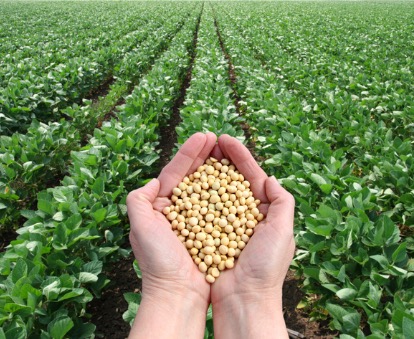Innovations in Oils
Transitioning to renewable resources

BIOMASS OIL
Plant oils are an important renewable feedstock for replacing petroleum in industrial applications such as fuels and materials. But their ability to do so at the massive scale required is heavily constrained by the limited surplus of food oils coming from oilseed crops and palm plantations. However recent developments in plant oil engineering are opening-up a game-changing new pathway by enabling plants to produce and accumulate oil in their biomass (leaves, stems, roots) rather than just their fruits and seeds.
In nature, no plants produce significant amounts of triglyceride oils in their leaves, stems or roots – instead they use sugars and starch as their major transient energy storage molecules in those tissues. But in their seeds and fruits many plants convert these starches and sugars into fats and oils (triglycerides) to provide the energy-dense reserves needed for germination.
Building on an increasingly complete understanding of the metabolic control of fatty acid synthesis and triglyceride assembly that occurs in seed oils, CSIRO scientists conceived an integrated metabolic engineering strategy to equip vegetative tissues with the ability to convert their sugars and starches into fatty acids and triglycerides. The approach involved cloning a set of genes encoding the required enzymes and regulatory factors that operate in oilseeds, and transgenically expressing them in vegetative tissue.
Using tobacco as the model plant engineering system, the researchers initially obtaining levels of oil as high as 15% on a dry weight basis in the leaves. These levels were subsequently doubled to >30% through further genetic manipulations. The ability to produce such high concentrations of oil in the biomass of high-yielding vegetative crops has the potential to be game-changing in increasing the scalability and reducing the cost of plant oil production.
These results have stimulated considerable interest in exploring the ‘Biomass Oil’ trait in other crop species. In principle, the metabolic intervention should be workable in any plant, and has already proved to be effective in sugarcane, sorghum, and potato. Based on the high levels so far achieved in tobacco, it is conceivable that oil yield in highly productive biomass crops, such as sugarcane/energycane and sorghum, could reach into the 5-10 tonnes per hectare range and exceed that of the highest yielding oil palm plantations.
Although several elements remain to be optimised, Biomass Oil technology clearly has exciting potential to produce very large volumes of extractable oil from within existing agricultural systems. The ability to deploy the technology in the biomass residue of food/feed grain crops, will enable the production of Biomass Oil to be intensified within existing food cropping systems without competing for land, thus avoiding the ‘food vs fuel‘ tension previously encountered with use of dedicated bioindustrial/biofuel crops.
Get the facts …
CSIRO Biomass Oil technology explainer video
Breakthroughs in feedstock technology from CSIRO present a promising Biomass Oil pathway. (12/02/2021)
Renewable fuels are taking off, but can they supply the massive demand? (18/12/2020)
Metabolic engineering for enhanced oil in biomass. Progress in Lipid Research (2019)
Step changes in leaf oil accumulation via iterative metabolic engineering. Metabolic Engineering (2017)
Metabolic engineering of biomass for high energy density: oilseed-like triacylglycerol yields from plant leaves. Plant Biotechnology Journal (2014)
<-- More Oil Innovations -->

BIOMASS OIL
Crop plants engineered to make large amounts of triglyceride oils in their leaves, stems and roots rather than just in their seeds and fruits.

OMEGA-3 CANOLA
Canola oil engineered as a renewable, affordable & safe plant source of ω3 DHA & EPA, essential dietary fatty acids normally obtained from fish.

SHO SAFFLOWER
Super-high oleic (92%) safflower oil has been developed for use in high-stability industrial lubricants and as a feedstock for chemicals and polymers.

LINOLA
Low-linolenic linseed oil developed by induced mutation provides an alternative source of polyunsaturated oil for food and industrial use.

WAX ESTERS
Crambe is being engineered to produce novel waxes that combine fatty acids and alcohols for use as lubricants and renewable industrial feedstocks.

ACETYL-TAG
Unique triglycerides with an acetate group replacing one of the fatty acids, have reduced viscosity and can be drop-in replacements for diesel fuels.

HIGH OLEIC SOYBEAN
Soybean producing highly stable oil with up to 82% oleic acid is the first new oil crop to be developed using advanced gene editing technology.

